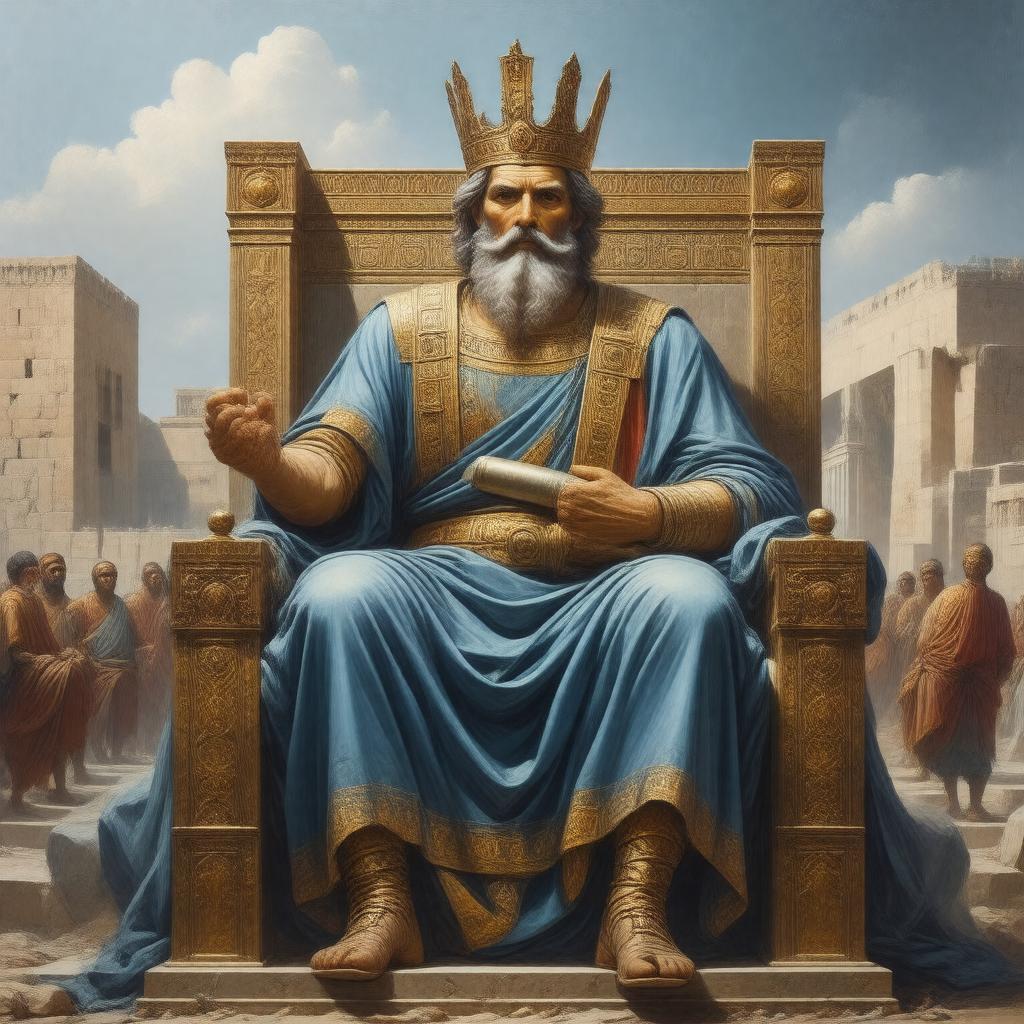Prompt
"Generate an image of Cyrus the Great, a 6th-century Persian king, sitting on a throne, wearing a traditional Achaemenid crown and robes, with a backdrop of the Pasargadae palace in Persia. He should be depicted with a wise and just expression, holding the Cyrus Cylinder in one hand. The style should be reminiscent of ancient Persian reliefs, with intricate details and ornaments. The color palette should be inspired by the golden and blue hues of ancient Persian artifacts."

